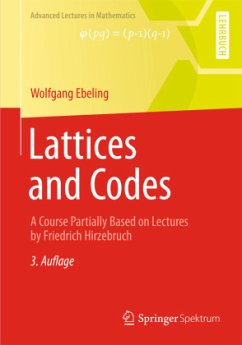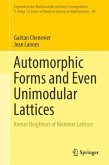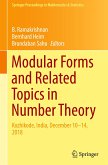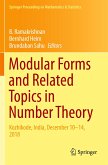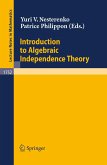The purpose of coding theory is the design of efficient systems for the transmission of information. The mathematical treatment leads to certain finite structures: the error-correcting codes. Surprisingly problems which are interesting for the design of codes turn out to be closely related to problems studied partly earlier and independently in pure mathematics. In this book, examples of such connections are presented. The relation between lattices studied in number theory and geometry and error-correcting codes is discussed. The book provides at the same time an introduction to the theory of integral lattices and modular forms and to coding theory.
In the 3rd edition, again numerous corrections and improvements have been made and the text has been updated.
In the 3rd edition, again numerous corrections and improvements have been made and the text has been updated.
From the reviews of the third edition:
"In the book under review, Ebeling explores the mathematical theory of lattices and the ways that it is used by coding theorists. ... I very much enjoyed reading Ebeling's book. ... This book contains some exciting mathematics, and I would recommend it to a graduate student or faculty member looking to learn about the field." (Darren Glass, MAA Reviews, April, 2013)
"In the book under review, Ebeling explores the mathematical theory of lattices and the ways that it is used by coding theorists. ... I very much enjoyed reading Ebeling's book. ... This book contains some exciting mathematics, and I would recommend it to a graduate student or faculty member looking to learn about the field." (Darren Glass, MAA Reviews, April, 2013)

